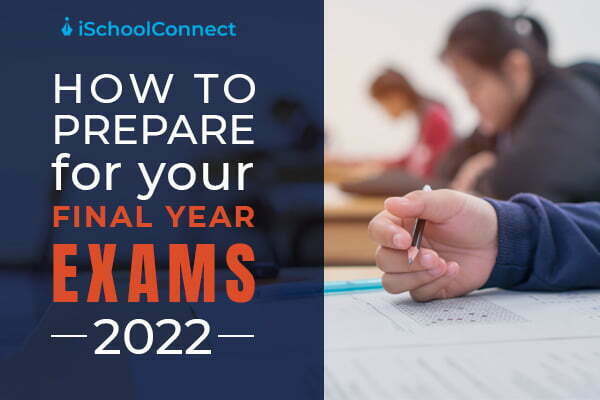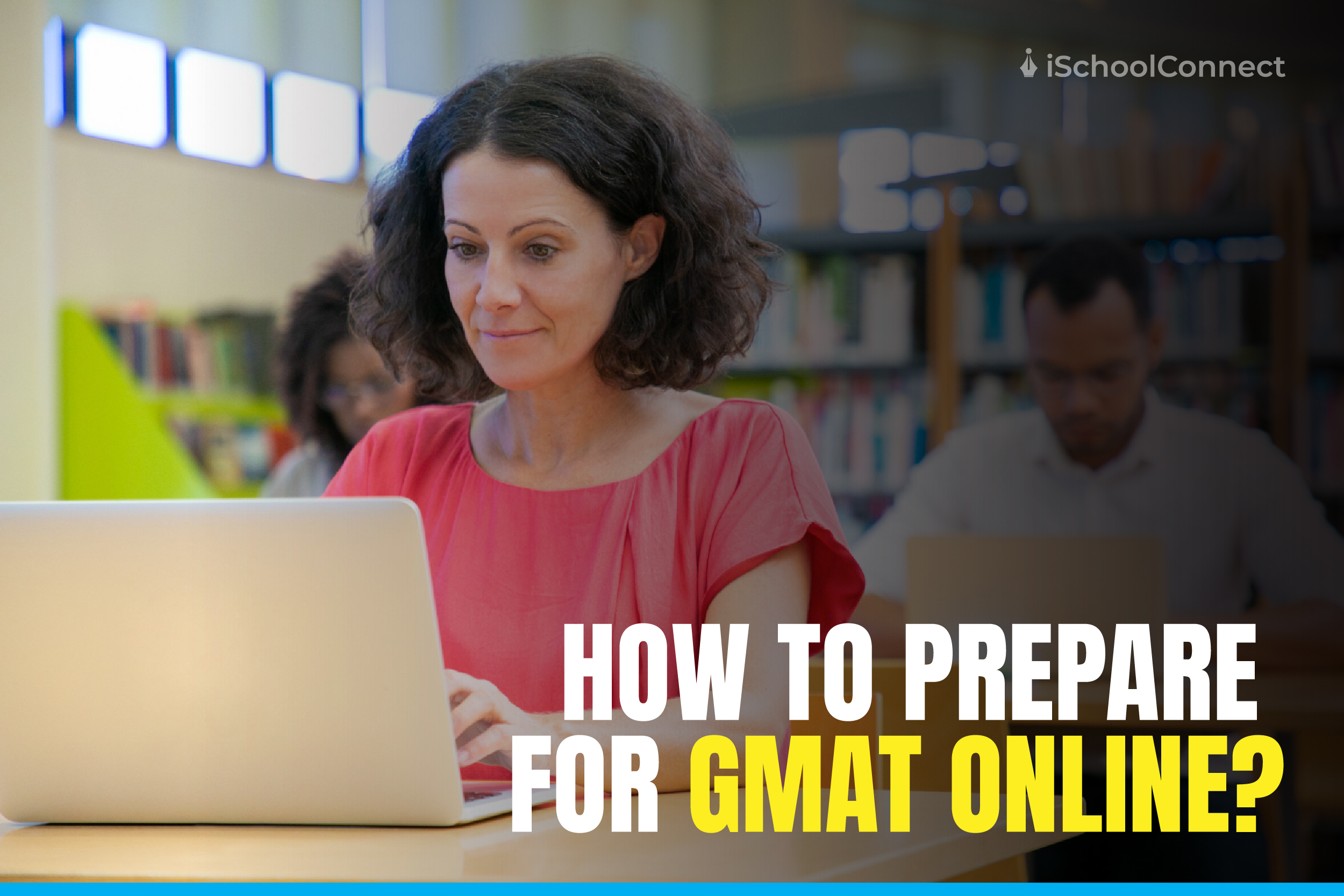Table of Contents
- 1. Start early
- 2. Create a personalized study guide
- 3. Learn time management
- 4. Join a study group
- 5. Implement learning techniques
- 6. Organize your study material
- 7. Take breaks
- 8. Follow a healthy lifestyle
- 9. Stay in touch with your professors
- 10. Have a dedicated workspace
- FAQ’s
- Key takeaways for your final year exam
We realize your final year exam could be the most stressful time of the year, or maybe your entire academic journey. It’s not only important to study hard but also to study smart. Since stressing out will not solve your problems, we have just the right solution for you. No, we can’t get your exams cancelled, but we have curated 10 tried and tested tips to help you nail your exam prep!
In fact, you can implement these tips in other aspects of your life as well (bonus!). Now, let’s look at these 10 tips to make your final year exam prep a smooth process.
1. Start early
Time is an indispensable commodity and hence, using it wisely can pay well when focusing on your studies. So when you start early, it gives you the upper hand to learn more.
Don’t focus on getting an upper hand over others. Instead, focus on not wasting your time by rote learning. Understand your study material so it helps you later in life as well.
Knowing your exam schedule and planning your actions accordingly can help you rethink your strategies. However, sometimes universities put the exam schedule a week before the exam. What do you do then? Start early, anyway.
Do this so you know what is difficult for you and what you can grasp quickly. This will give you extra time for trial and error. It will also help you gauge your techniques in case the plans you’ve implemented are going in the wrong direction.
2. Create a personalized study guide

There are a lot of pre-made study guides for the final year exam which aren’t guaranteed to work for you or anyone else. To know what works for you, take these things into consideration-
- The pace you are comfortable studying at.
- The technique of memorizing that works best for you.
- For how long you can focus at a time.
- How much time is left before the final year exam.
Outline these important aspects, as well as the information that may help you transform your study guide. You need to fill your study guides with the necessary details so that nothing goes amiss at the 11th hour.
Crafting your study guide may take some time, but it will be time spent well if you follow it properly. Don’t cram up your guide with unnecessary resources and techniques, rather streamline it with only what works for you.
Your guide can be as creative or as simple as you like. If flow charts and tables work well for you, add those to make your work easily accessible for you.
3. Learn time management
When we talk about time management, it isn’t always about cutting out distractions like television, social media, and other activities that lead to procrastination. It is about learning how to manage your time while writing your exams and implementing your strategies.
Certain subjects and topics in your final year exam might be more difficult than others. This may require you to spend more time focusing on nailing them. Hence, it’s important to assign time to the subjects and topics that need more work.
It’s also important to check the grades you have secured in your previous exams. This will give you a fair understanding of which subject will need more time and attention. Evaluate all these factors and plan your guide and time.
Understanding your strengths and weaknesses will give you the upper hand here. Time management is a skill that will not only benefit you in your exams but in every walk of life. It’s the skill recruiters look for in candidates.
4. Join a study group

We get it, the final year exam season is stressful. It is often easy to miss out on things like the exam format, relevant topics, and clarification of key concepts that need the most focus. Hence, you should have a close-knit group of peers that you can rely on.
Always remember, a group of people with a common aim reach their goal faster. Despite the social distancing factor, you can resort to a video call where mutual discussions can be beneficial to both the sides.
Do this well in advance and not a few days before the exam. It’s better to not distract others so close to them exam. They are likely to get irritated because they are focusing on revising as well.
5. Implement learning techniques
One important technique is the Feynman technique, which was developed by the famous scientist Richard Feynman. This learning method simply involves explaining a concept to someone else and learning it simultaneously.
It is effective because explaining a concept is easier than just reading about it. Start by teaching your peers, who can help you pick out errors while you recollect information.
Opting for mock test papers can also prove to be helpful in checking your knowledge as well as how well you can manage your time. For a quick test before your final year exam, you can also opt for quizzes and use flashcards. Techniques like color coding and labeling will help you figure out the finer details.
Certain aspects of learning – like audio/visual learning techniques – can help you remember diagrams as well. It is also important to quiz yourself at regular intervals to check how much you remember. In the end, don’t forget to make the process fun!
6. Organize your study material
It is important to evaluate and organize your study material way before your final year exams. Keep outlines, dates, formulae, definitions, and other important details organized so that they come in handy whenever you need them.
This will help you save time when looking for something important, especially during entrance exams, where extensive preparation is required.
7. Take breaks

It seems simple, but the idea of not studying or working may overwhelm many students. Your final year exam is a time when you need to focus. But how will you focus when your mind is constantly buzzing? You need a few breathers throughout the day so that you don’t burn out.
If you consume all your study material at once, it will only make you anxious. This, in turn, will throw you off-board while preparing for your final year exam.
Ensure that the right balance is maintained and breaks are taken. When you take a break, you have a better chance of retaining the knowledge and coming back refreshed and more productive.
Your break time should help you recharge and relax. How long of a break you want to take will depend on you. For some, a 10-minute break is perfect, while for others, a one-hour break is more helpful.
To be productive throughout the day and complete more studying, you can-
- Study for 1 or 2 hours and then take a 30 minute break.
- Study for 20 minutes and take a 5 minute break.
Choose a schedule that works for you.
8. Follow a healthy lifestyle
You may think working hard is all that’s needed to score well in your final year exam. But did you know that maintaining a good sleep schedule is equally important? To be more attentive and have clear focus, you need around 6 to 8 hours of sleep.
Following such a lifestyle will also help you retain what you learned for a longer time. Also, eating right goes a long way in maintaining optimum health conditions and ensures that you aren’t under the weather at the most important time of the year.
For example, pulling all-nighters might not prove to be helpful toward acing your final year exam. Instead, study for a certain amount of hours and then get some rest. If studying at night helps you more, make sure to get enough rest during the day.
Steps like these can help you to get into your most preferred university and build a strong profile.
9. Stay in touch with your professors
Despite being in touch with your study group, make sure to be in contact with your teachers or mentors so you can learn better.
Certain institutes require their faculty members to set aside some hours for extra study sessions in case students still have doubts. Many colleges also offer tutoring services, which may help. This will help you get your doubts cleared.
You can ask questions about the class study material, the techniques of solving a problem, or any other issues you’re facing. Such extra sessions can help you with your exams and give you in-depth information about a subject’s practical application in real-life situations as well.
10. Have a dedicated workspace

Maintaining an organized, clean, and distraction-free workspace is often overlooked as an exam prep step. But studying in your designated corner of the house can help you better focus on the task at hand.
When you have a designated corner to study, it puts you in the right mindset. It acts like a switch for your brain. We associate beds with comfort and sleep, hence if you sit on your bed and study, you’re likely to feel lethargic. Having a study space will tell your brain ‘it’s time to focus.’
If not a desk at your home, this place could also be a library or a cafeteria if that suits your needs. A certain place might not fit everyone, so see what helps you get in the zone.
FAQ’s
Q1. What are the most effective techniques to study?
Answer: Making a study schedule, keeping a record of your academic resources, and keeping your study notes organized are some of the most effective study techniques. However, this is also a process of trial and error. So try different things and see what works best for you.
Q2. What is the Feynman technique of learning?
Answer: Let’s see the 3 steps-
- Teach a topic you are learning to someone else so you can get feedback.
- Refer to the study material again if you get stuck.
- Simplify your explanations and describe the concept with clarity.
Q3. What are the most impactful study skills?
Answer: Some of the most impactful study skills include – reading, listening, summarizing, visual imagery, flashcard training, and more.
Key takeaways for your final year exam
- Don’t keep things for the last minute; start early.
- Create a study guide that fits your needs.
- Work on subjects that you are weak in by giving them more time.
- Revise and review your study material with your friends.
- Use different techniques that help you to concentrate and study efficiently.
- Organize your study material in a way that makes it easy to access.
- Taking breaks will boost your productivity.
- Maintain a healthy lifestyle to better your health and not fall sick during exams.
- Reach out to your professors if needed.
- Have a particular space to study.
If you still want more tips and tricks, you can read our blogs! Wait, too lazy to read? We have a podcast as well! You can also comment below and let us know what you think.
See you in the next blog!






